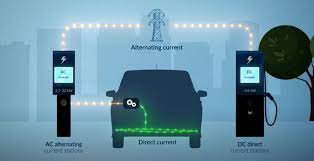
In the wake of an escalating interest in sustainable transportation, the demand for electric vehicles (EVs) has surged, catalyzing a concomitant need for efficient EV charging solutions. Among the urban centers spearheading this transition, EV charging station installation Las Vegas has emerged as a focal point, setting the stage for a transformative shift in how we power our vehicles.
Choosing the Right EV Charger
The cornerstone of an effective EV charging setup lies in selecting an appropriate charger. Broadly categorized into Level 1, Level 2, and DC Fast Charging, each type offers distinct advantages tailored to diverse needs. Level 1 chargers, while modest in their output, provide a baseline convenience for home charging.
Level 2 chargers, on the other hand, strike a balance between speed and accessibility, making them ideal for residential and commercial settings alike. DC Fast Charging, the zenith of current technology, delivers rapid charging speeds, albeit with considerations for installation cost and infrastructure support.
When deliberating on the right EV charger, ponder the juxtaposition of power output against your daily driving routine, the spatial dynamics of the intended installation site, and the electrical specifications of your vehicle to ensure a harmonious integration.
The Installation Process Demystified
Embarking on the installation journey necessitates a meticulous assessment of your premises’ electrical system and adherence to local zoning ordinances. The process unfolds through a sequence of deliberate steps, beginning with a consultation with a certified electrician to evaluate the electrical capacity of your home or business. Following this preliminary assessment, the installation can proceed, adhering to a structured blueprint that encompasses wiring, mounting the charging unit, and securing a final inspection to certify compliance with all safety standards.
Maximizing Charger Efficiency
To extract the utmost efficiency from your EV charging station, consider the charger’s placement carefully. Positioning near the vehicle’s usual parking spot minimizes the need for extensive cabling and harnesses the full potential of your installation. Furthermore, the advent of smart charging technologies has paved the way for features such as scheduled charging during off-peak electricity hours, thereby optimizing energy consumption and reducing costs.
Future-Proofing Your Installation
In a landscape marked by rapid technological evolution, ensuring your EV charging solution remains relevant over time is paramount. Opt for systems that offer modularity and upgradability to accommodate advancements in charging technology and an increase in your EV fleet. Integrating renewable energy sources, such as solar panels, into your charging infrastructure can further enhance the sustainability and efficiency of your setup, aligning with broader environmental objectives.
Optimizing for the Future: Advanced Considerations
As the horizon of electric vehicle (EV) technology extends, understanding the intricate dynamics of EV charging station installation deepens in complexity and importance. This segment delves further into advanced considerations to ensure your installation is not only optimized for today’s needs but also adaptable for tomorrow’s innovations.
Enhanced Compatibility and Connectivity
In an era where technology rapidly evolves, ensuring that your EV charging station is compatible with a broad spectrum of vehicles becomes crucial. Advanced stations come equipped with universal connectors and software that can update automatically to remain in sync with new EV models and charging protocols. Furthermore, connectivity features such as WiFi or cellular connection facilitate remote monitoring and control, allowing users to manage their charging sessions with unprecedented ease and efficiency.
Leveraging Incentives and Rebates
Governments and utility companies often offer incentives and rebates to encourage the adoption of EVs and the installation of EV charging stations. These can significantly offset initial costs and make the transition more economically viable. Delving into available local, state, and federal incentives can uncover opportunities to reduce expenses while contributing to environmental sustainability.
Smart Energy Management
Integrating smart energy management systems with your EV charging setup can dramatically enhance efficiency. These systems can dynamically adjust charging rates based on real-time energy demand, availability of renewable energy sources, and electricity pricing. By prioritizing charging during off-peak hours or when there is surplus renewable energy, users can minimize their carbon footprint and energy costs. Moreover, integration with home energy management systems can provide a holistic approach to optimizing household energy consumption, ensuring that EV charging complements your overall energy strategy.
This approach applies not only to residential setups but also to commercial EV charger installations, where businesses can benefit from smart systems that reduce operational costs and support sustainability goals. For instance, large retailers and parking facilities have begun adopting these advanced technologies to attract eco-conscious customers. Similarly, corporate campuses are utilizing smart energy management to integrate EV charging with their broader renewable energy initiatives, further solidifying their commitment to green energy solutions. By addressing these advanced considerations, individuals and businesses can refine their EV charging station installations, ensuring they remain at the forefront of sustainability and efficiency as the electric mobility landscape evolves.
Conclusion
The trajectory towards widespread adoption of electric vehicles is irrevocably intertwined with the development of robust and efficient charging infrastructures. As we delve into the nuances of EV charging station installation, the considerations outlined herein serve as a guide to making informed decisions that not only cater to present needs but also anticipate future trends. Amidst the evolving dynamics of electric mobility, the initiative taken today will pave the way for a greener, more sustainable tomorrow.
Write and Win: Participate in Creative writing Contest & International Essay Contest and win fabulous prizes.


